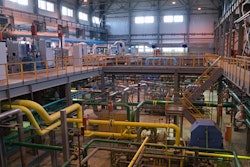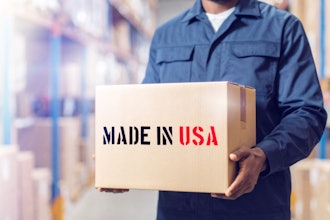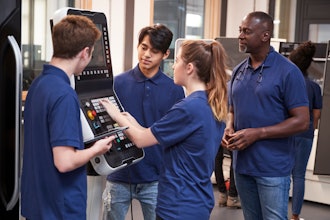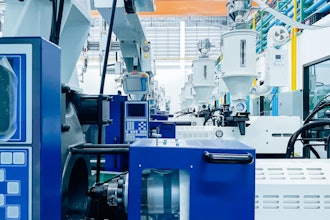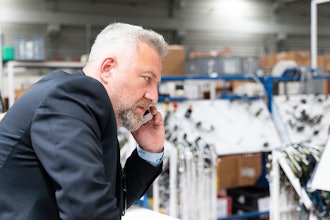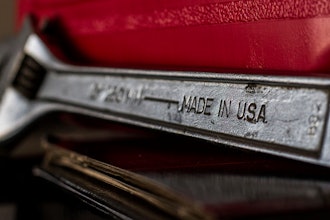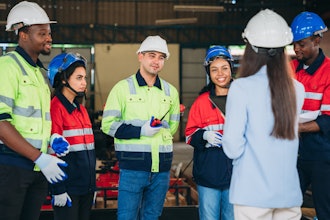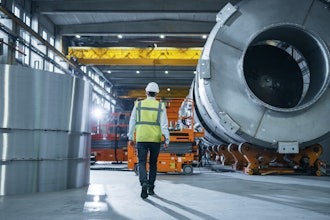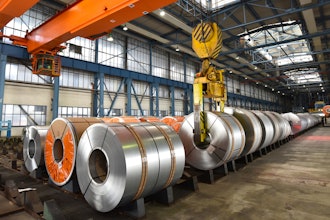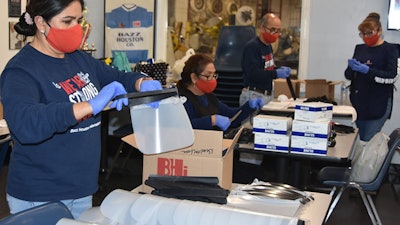
When you combine the American spirit of compassion with the creativity and innovation of U.S. manufacturing, amazing things happen. Thanks to the efforts of manufacturing companies from coast to coast and all around the world, health professionals and first responders are getting the PPEs they need to help save lives.
The following stories of three such companies – in Florida, Wisconsin and California – make me proud to support these manufacturers and heroes.
Making Foam Strips to Save Lives
Many companies in the U.S. manufacture and assemble various types of protective face masks, and right now they’re making them as fast as they can. The problem is the foam pads used to cushion the front of the mask are in short supply. In fact, one of the biggest shortages is the foam strips used to make disposable “shield” masks, that are worn once and then discarded.
Based in Menomonee Falls, Wisconsin, Milcut, Inc., which fabricates foam, rubber, plastic and high-temperature materials, is doing all it can to help meet the demand. At the urgent request of customers, Milcut began making foam strips for the plastic splash shield that goes on protective face masks. These strips are not one of their standard products. Yet, within three days of receiving the first order, they shipped 15,000 of them.
Milcut then connected with Operation MaskForce, a local effort linked to colleges, hospitals and businesses, and began producing filters for canister masks, a more sophisticated type of protective mask used in hospitals.
“The foam strip and canister filter are similar to products we already make, but we had to make a few adjustments before starting production,” says Curt Huettner, Director of Sales for Milcut. “Fortunately, we had plenty of foam on hand. For the filter, it took a while to find a media type that met three essential criteria. It had to be breathable, it had to filter out the correct size particulate (N95 mask goal), and we needed a source that could provide high volumes right away. That took us about four weeks to get going, but we are now supplying them to a local company that makes canister masks.”
Production for the filters started at around 1,000 per day, but Huettner expects Milcut to soon turn out 30,000 per day. Meanwhile, the company is currently shipping around 50,000 foam strips a day to customers throughout the U.S., with total orders of more than 900,000.
“This crisis highlights the importance of having strong supply chains, because we’re all in this together. As long as we can get the supplies we need, we can mass produce the parts. We send them to our fellow manufacturers so they can make the PPEs that end up on the front lines, where they are desperately needed,” says Huettner.
An Act of Kindness for the Frontlines
Coming together to make a difference is not something that is foreign to Bazz Houston International (BHI). When CEO Javier Castro learned of the serious shortage of protective face masks in local hospitals, he didn’t hesitate. Quickly teaming up with two other Orange County, CA-based companies, he launched an immediate effort to design and manufacture face shields for doctors and nursing staff at local emergency rooms.
The fact that BHI, a metal forming manufacturer, had never made such a product did not slow Castro down. With no experience working with plastics, Castro and his engineers began experimenting with the design. Eight prototypes later, they finally hit on the right one.
Setting a goal of 15,000 face shields, BHI began sourcing the necessary materials, and Castro put out a call for volunteers to help assemble them. After clocking out of their regular shifts, many employees worked late into the evening on their own time, assembling 330 face shields on the first day. Castro hoped to make at least 1,000 face shield components per day. BHI’s dedicated employees ended up assembling 15,000 units in only five days.
BHI began donating the face shields to local hospitals and emergency responders at no cost, and word of mouth quickly spread. When Sony learned of the donations, they began covering the cost of shipping the face shields to other states around the country.
“This was a group effort,” says Castro. “We partnered with our friends and fellow business owners from Automotive Entertainment and Defined Concepts. A few local companies volunteered to purchase some of the raw materials, which enabled us to make 3,000 shields beyond our goal.”
“For me, the best part was seeing the passion and commitment our employees showed to each other and the frontline health professionals as they lived our company motto: We Are Strong Together. It feels good knowing that our small business can give back to people who risk their own lives for us and those we love.”
Making It Safe to Study the Virus
While many manufacturers are providing the PPEs and other materials doctors, nurses and first responders need to contain the COVID virus, others are providing safe places for researchers to study the virus.
Germfree, a global manufacturer of mobile laboratories, has been providing remote on-site response capabilities for decades. This experience played a key role in the Florida-based company’s ability to respond quickly to the COVID-19 pandemic. As regional epidemics grew into a global pandemic, the need for bio-containment space skyrocketed. In response, Germfree significantly expanded their factory capacity while offering expertise to industry partners also trying to fulfill the unmet need.
Germfree built, delivered, and installed the mobile bio-containment lab in Singapore that was the first in the region to isolate COVID-19. In addition to ramping up deployment of mobile cleanroom containment units, the company is also developing new techniques for remote monitoring of critical controls.
Recently, Germfree delivered a 53’ containment cleanroom trailer to a major U.S. pharmaceutical company working on a COVID-19 vaccine. This was the first of many more mobile labs the company will deliver to scientists and organizations working on virus and antibody testing, vaccine development, research, and deployment solutions.
Reinforcing the belief that “we’re all in this together,” some of Germfree’s most important suppliers have dedicated their resources to producing the materials needed to manufacture the containment labs.
Kentucky Trailer, a key provider of specialty mobile platforms, has made Germfree their top priority. Other suppliers, including Northern Air Systems, a producer of specialty cooling units for the mobile laboratories, are putting mechanisms in place to secure the supply chain for Germfree during the pandemic.
“Thanks to our suppliers and the hard work of our employees, Germfree was able to quickly meet the need for a biocontainment unit specifically designed for COVID-19 vaccine development,” says Keith Landy, CEO of Germfree. “Yet, we believe it is not enough just to have sufficient global lab capacity for this pandemic. The labs we’re designing to combat the coronavirus can be easily tailored to meet needs that have yet to be identified so we’ll be better prepared for the next crisis.”
I highlighted Milcut, BHI and Germfree because they represent more than just the ingenuity and “can do” attitude of manufacturers. These companies – each part of the family of manufacturers powered by Global Shop Solutions – also demonstrate a real compassion and caring for their neighbors and for people all over the globe. Their efforts make it clear that we are indeed all in this together – today and in the future.
Dusty Alexander is the CEO and President of Global Shop Solutions, a leading supplier of ERP software solutions.






